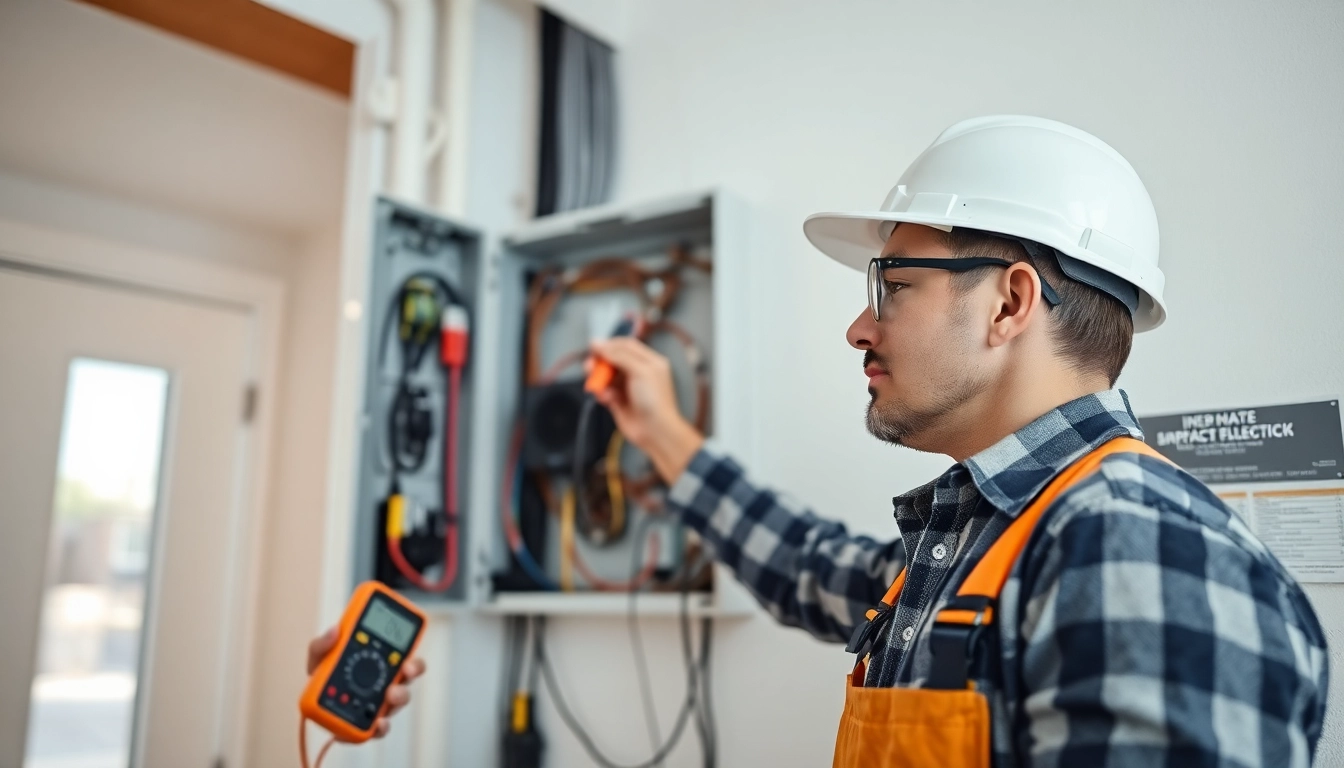Understanding the Basics of Electrical Panel Upgrades
An electrical panel upgrade is a significant yet often necessary process for homeowners looking to modernize their electrical systems. As the demand for electricity grows—driven by the increasing use of smart devices, electric vehicles, and energy-efficient appliances—the need for upgraded electrical panels becomes more critical. This article aims to provide a comprehensive overview of the importance of electrical panel upgrades, the benefits they bring, the associated costs, and guidance on selecting the right options for your home. For a deeper dive into when to consider this essential improvement, refer to the Electrical Panel Upgrade resource.
What Is an Electrical Panel Upgrade?
An electrical panel serves as the central point where the electrical current from the utility company is distributed throughout the home. It is responsible for controlling and allocating electricity to various circuits, providing safety and functionality. An electrical panel upgrade typically involves replacing an outdated panel with a newer one that offers higher capacity and improved technology, which can better meet the current demands of a household.
Why Upgrade Your Electrical Panel?
Upgrading your electrical panel can have several advantages, primarily related to safety, efficiency, and compliance with modern energy demands. Older panels may not be equipped to handle the load of contemporary appliances and systems, leading to risks such as overheating, electrical failures, and even fire hazards. Upgrading not only increases the panel’s capacity but also enhances overall safety and system reliability.
Common Signs Your Electrical Panel Needs an Upgrade
- Frequent Circuit Breaker Trips: If the circuit breakers trip often, it indicates that the panel cannot handle the current load.
- Inconsistent Power Supply: Flickering lights or devices that turn on and off unexpectedly can signal panel issues.
- Burning Smell: Unusual scents emanating from the panel suggest overheating or electrical faults that need immediate attention.
- Old or Damaged Panel: If your panel is over 20 years old or shows signs of wear, it may be time to upgrade.
- Adding New Electrical Loads: Installing high-demand appliances, such as an electric vehicle charger or multiple HVAC units, may require a panel upgrade.
Benefits of an Electrical Panel Upgrade
Increased Electrical Capacity for Modern Needs
One of the primary benefits of an electrical panel upgrade is the increased capacity to handle modern electrical demands. Homes today may require panels capable of accommodating 200 amps or more, especially with the rise of electric appliances and home automation systems. This increase allows for the simultaneous use of multiple devices without the risk of overload, ensuring a more comfortable and functional living environment.
Improved Safety and Compliance with Code
Modern electrical panels adhere to updated safety codes and standards, which are crucial for minimizing the risk of electrical fires and other hazards. An upgrade often means enhanced circuit protection and technology, including GFCI (Ground Fault Circuit Interrupter) and AFCI (Arc Fault Circuit Interrupter) breakers that provide additional layers of safety. By ensuring compliance with current electrical codes, homeowners can protect their property and ensure safety for occupants.
Enhanced Energy Efficiency and Savings
New electrical panels often include advanced energy monitoring systems that help homeowners track electricity consumption, leading to better energy management. This not only helps in identifying high-energy usage patterns but also paves the way for potential savings on utility bills. In many cases, upgraded systems can improve the overall energy efficiency of the home.
Cost Considerations for Electrical Panel Upgrade
Understanding Upgrade Costs and Variables
The cost to upgrade an electrical panel generally ranges from $800 to $4,000, depending on various factors such as labor costs, the type of panel chosen, and any additional modifications required to the existing electrical system. The total expense may also include enhancements or reinforcements to wiring, additional circuits, or even permits required by local building codes. It’s essential to gather several quotes from licensed electricians before moving forward.
Financing Options and Rebates
Many states and utility companies offer financing options or rebates for homeowners who upgrade their electrical systems to promote energy efficiency. Investigating local and state programs can uncover potential savings that significantly reduce the financial burden of upgrading your electrical panel. Homeowners may qualify for tax incentives or rebates specifically tied to energy-efficient improvements.
Cost vs. Value: Is It Worth It?
Determining whether an electrical panel upgrade is worth the expense hinges on several factors, including current electrical usage, future growth plans, and safety concerns. For many, the peace of mind that comes from having a safe and adequately powered electrical system justifies the expense. Additionally, a modern and efficient electrical setup can enhance the overall value of a home, making it more appealing to potential buyers in the future.
How to Choose the Right Electrical Panel Upgrade
Selecting the Right Size and Type
Choosing the appropriate size and type of electrical panel is crucial for a successful upgrade. Homeowners should assess their current and future electrical needs, considering factors such as the number of bedrooms, planned electrical appliances, and lifestyle choices. This assessment can guide selecting between traditional or smart panels that monitor and control electricity usage.
Finding a Qualified Electrician
Hiring a licensed professional for your electrical panel upgrade is essential to ensure safety and compliance. Look for electricians with strong industry reputations, positive customer reviews, and proper licensing. It’s advisable to interview multiple candidates and ask for detailed estimates and timelines before making a final decision.
Permits and Regulations You Need to Know
Electrical panel upgrades often require permits from local authorities, which is critical for ensuring that work is performed to code. Homeowners should consult with their electrician to understand the specific regulations in their area. Proper permitting not only safeguards the homeowner but also protects future property values against potential liabilities.
Maintenance and Aftercare for Your Upgraded Panel
Regular Inspection and Maintenance Tips
Once the electrical panel upgrade is complete, regular maintenance is crucial to ensure continued safety and performance. Homeowners should schedule inspections at least every three years, looking for signs of wear or potential issues. Keeping the area around the panel clear of obstructions and dust can prevent overheating and facilitate easier inspections.
Signs of Trouble After Upgrade
After upgrading your electrical panel, remain vigilant for any signs of trouble, including unusual noises from the panel, persistent tripping of breakers, or the presence of heat emanating from the panel casing. If any of these signs occur, it is essential to contact a qualified electrician immediately for evaluation and troubleshooting.
Future-Proofing Your Electrical System
To maximize the investment made in your electrical panel upgrade, consider future-proofing your electrical system. This involves planning for potential upgrades as technology evolves, such as incorporating smart home technology or accommodating changes in energy consumption patterns. A well-planned electrical system can adapt to future needs, ensuring it remains efficient and safe.



